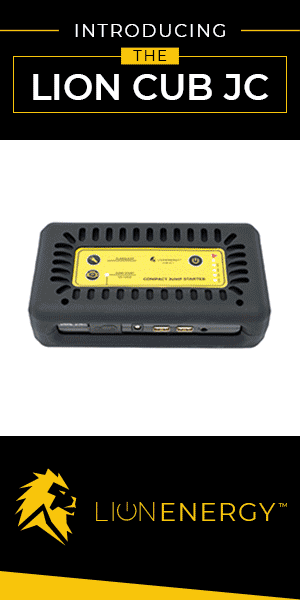Table of Contents
ToggleIntroduction
Whether you’re a homeowner looking to cut energy costs or an eco-conscious consumer exploring green solutions, understanding the mechanics behind solar hot water heaters can be a game changer. These systems don’t just heat water—they lower bills, reduce emissions, and increase your home’s value.
What Is a Solar Hot Water Heater and Why Should You Care?
A solar hot water heater uses sunlight—a free and abundant resource—to heat water for residential or commercial use. Unlike solar photovoltaic systems, which convert sunlight into electricity, solar thermal systems are designed specifically to capture heat.
Components of a Solar Water Heating System
Here’s what makes a typical system work:
-
Solar Collectors: These are panels installed on your roof that absorb solar radiation.
-
Heat Transfer Fluid: In indirect systems, this fluid (often glycol-based) circulates through the collectors, absorbing heat.
-
Heat Exchanger: Transfers heat from the fluid to the water in your storage tank.
-
Storage Tank: Insulated tank that holds the heated water until it’s needed.
-
Backup Heater: Kicks in during low sunlight conditions.
-
Controller & Pump (Active Systems Only): Moves fluid between collectors and the tank based on temperature differences.

How Solar Hot Water Heater Works in Real-Life Scenarios
Let’s break it down with an example:
Imagine it’s a sunny day. Sunlight strikes the collectors on your roof. The collectors heat up the fluid inside, which flows down to a heat exchanger connected to your water tank. That heat warms your stored water, ready for showers, laundry, and dishwashing. On a cloudy day? The system senses less heat and activates a backup heater to ensure a consistent supply of hot water.
Types of Solar Hot Water Systems Explained
1. Active Solar Water Heating Systems
These systems use pumps and controls to circulate the fluid.
-
Open-loop (direct): Water is heated directly in the collectors—ideal for warm climates.
-
Closed-loop (indirect): A separate fluid is heated and then transfers its heat to the water—best for freezing climates.
2. Passive Solar Water Heating Systems
These rely on gravity and natural convection. They have fewer parts and are more reliable long-term, but slightly less efficient.
-
Integral Collector Storage (ICS): Combines storage and collection in one unit.
-
Thermosyphon Systems: The tank is positioned above the collectors, and hot water rises naturally.
Benefits of Solar Hot Water Heating You Might Not Know
Dramatic Energy Savings
Heating water accounts for about 18% of home energy use. With solar, you can cut this by 50–80%.
Long-Term Cost Efficiency
While upfront installation may cost $3,000–$7,000, incentives and energy savings make the ROI very appealing. Federal tax credits and state rebates often reduce the payback period to under 5 years.
Lower Carbon Footprint
Using solar energy significantly reduces your household’s greenhouse gas emissions. Just one solar hot water system can prevent up to 4,000 lbs of CO₂ annually.
Low Maintenance
Most systems require annual checkups and last 15–25 years—longer than traditional systems.
Comparing Solar Hot Water to Other Heating Methods
FAQs
1. How does solar hot water heater work in cloudy weather?
Solar hot water heaters use backup systems or store previously heated water to ensure a steady supply even when sunlight is limited.
2. How does solar hot water heater work in winter?
In colder climates, indirect systems with antifreeze circulate heat to your water, and backup electric or gas heaters maintain temperature on overcast days.
3. How does solar hot water heater work at night?
At night, the system relies on the insulated storage tank to supply previously heated water. If depleted, a backup heater takes over.
4. How does solar hot water heater work compared to electric heaters?
Solar systems use sunlight to heat water, drastically lowering utility bills, whereas electric heaters rely solely on electricity and increase monthly costs.
5. How does solar hot water heater work in a two-story home?
These systems are designed to handle multi-story plumbing layouts. Pressure and gravity-fed systems ensure efficient hot water delivery throughout the house.
6. How does solar hot water heater work with existing plumbing?
Most systems are compatible with standard plumbing and can be integrated with minimal changes, making retrofitting easy for most homes.
7. How does solar hot water heater work with tankless systems?
While solar heaters usually use tanks, hybrid setups can preheat water before it enters a tankless heater, increasing efficiency and reducing energy use.
8. How does solar hot water heater work in apartments?
For multi-unit dwellings, shared solar thermal systems or compact, individual rooftop units can provide energy-efficient hot water solutions.
9. How does solar hot water heater work with well water?
Solar systems function effectively with well water, though filtration and pressure considerations may be required for optimal performance.
10. How does solar hot water heater work long-term?
With a lifespan of 15–25 years, these systems provide reliable performance, minimal maintenance, and long-term savings when properly installed and serviced.
Conclusion: Take Control of Your Energy Future
Switching to a solar hot water heater is more than an upgrade—it’s a smart investment in your home, your wallet, and the planet. With rising energy costs and generous solar incentives available, there’s never been a better time to make the switch.
Explore certified solar hot water heater installers in your area and start saving today!
Disclosure: As an Amazon Associate, I earn from qualifying purchases.



